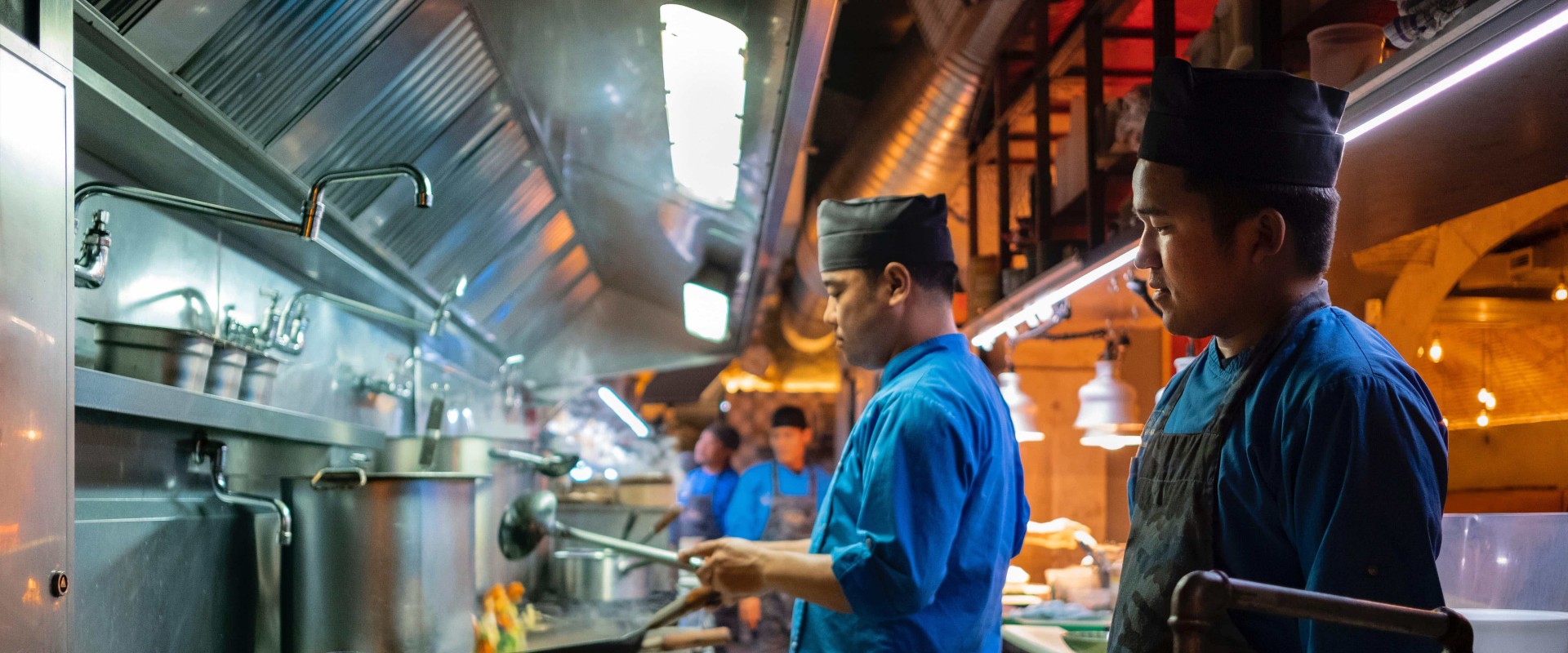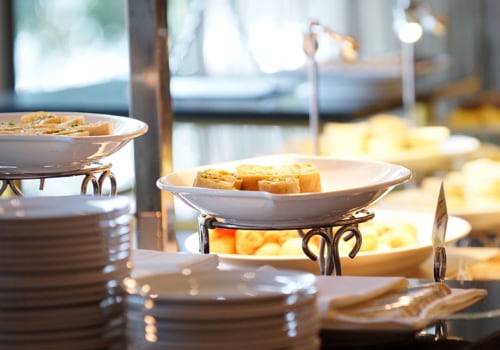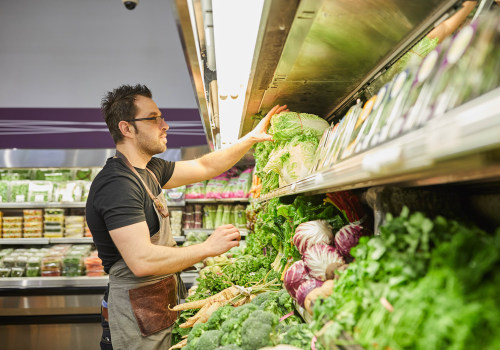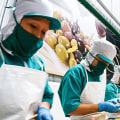Culinary Job Responsibilities and Duties
Create menus, supervise kitchen staff, and ensure food meets stringent quality criteria. Check the market regularly for fresh ingredients.
This job involves working full-time shifts that may include nights and weekends. Your primary role will be creating unique and flavorful recipes to delight customers' palates while placing supply orders and overseeing kitchen staff such as sous chefs and junior cooks.
Cooking Set Menu Items & Daily Specials
Chefs in restaurants or hospitality establishments have many responsibilities and duties, including creating delicious yet visually appealing meals for patrons, managing food costs and overseeing kitchen staff. Achieving these tasks successfully requires having excellent cooking skills as well as knowledge of a wide variety of culinary ingredients and techniques; working under pressure while meeting strict deadlines.
An executive chef oversees all culinary functions within a restaurant or hotel's culinary department. Their duties may include menu planning and preparation, ordering food supplies and equipment as needed, overseeing kitchen hygiene conditions, training cooks as necessary and overseeing their performance. Working closely with restaurant manager(s), banquet managers and sales managers they must also create new menu items specifically tailored for special events or functions.
A sous-chef serves as an assistant to an executive chef, and has many responsibilities within their restaurant or hotel such as meal preparation for customers. They must utilize proper methods when cooking ingredients to make sure all the required components are available when necessary, while being familiar with necessary equipment like whisks, spatulas, spoons and knives for preparation of foodstuffs.
Line cooks are responsible for doing most of the culinary work in restaurants. Assigned to various stations within the kitchen, each dedicated to a particular food or cooking process, line cooks must follow recipes set forth by an executive chef and ensure all dishes meet those standards for proper preparation.
Additionally, they must track inventory to ensure their kitchen is adequately supplied with supplies needed for daily operations and follow all health and safety regulations.
To become a sous-chef, generally three years' experience working as a cook in one position are typically required. A degree from culinary school may also be advantageous. Most often a sous-chef starts out as an assistant cook and works their way up through the ranks to become sous-chef; although this process can take time it provides invaluable experience in restaurants.
Preparing Ingredients For The Work Ahead
Food preparation involves several techniques. These may include chopping, mixing, cooking and serving. While these tasks can be complex and time-consuming, they're integral for creating successful meals. Food preparation is both an art form and applied science requiring both a high level of knowledge as well as being able to execute specific steps accurately.
Chefs play an essential role in restaurant kitchens by creating and cooking delicious food for customers. Their main responsibility lies in using various ingredients to craft delicious yet appetizing meals while meeting quality standards, and ensuring enough supplies and equipment are stocked within the establishment to serve its guests properly. In addition, chefs must maintain a sanitary working environment while training new staff members.
Chefs in some restaurants may be responsible for catering events and weddings. It is imperative that they can manage large orders quickly and accurately while simultaneously managing food inventory levels and ordering new supplies as needed. Furthermore, chefs may be required to hire and fire kitchen staff while creating budgets for the restaurant.
A pastry cook's duties involve creating delicious pastries for any special event or holiday - such as breakfast items, desserts, breads, ice creams and more - while keeping up-to-date on current food trends and culinary agents jobs styles in order to remain competitive in their field.
Pastry cooks also play an essential role in helping to train kitchen employees on how to prepare different types of foods, while providing clear instructions and communicating with wait staff about the daily menus.
A sous chef works under the direct supervision of an executive chef to manage daily kitchen operations and create new menus together with them. Furthermore, they must possess an in-depth knowledge of HACCP guidelines to uphold company food safety policies.
Sous chefs are accountable for overseeing lower-ranking staff in the kitchen, such as junior chefs and station chefs. In addition, they must prepare food for buffets, banquets, holiday parties and other events as needed, including catering orders that need to be fulfilled on an immediate basis.
Cleaning Kitchen Area
After every meal, it's crucial to clean up the kitchen as soon as possible. This involves storing any leftover food items, sanitizing any prep tools used and washing dishes. Assign specific tasks to different people so you can work efficiently together - for instance one person could put away leftovers while another loaded up silverware into the dishwasher.
A commis chef is accountable for handling various administrative duties at their restaurant, such as scheduling, training and coaching the culinary team. They must adhere to Hyeholde guidelines in order to operate safely and efficiently while possessing strong written and verbal interpersonal communication skills, strong leadership qualities to motivate their team as well as the dedication necessary for success in such an intense environment.
Plating and Presentation of Orders
As a chef, your job involves using culinary expertise to craft tasty meals for customers and oversee kitchen staff, making sure all food meets stringent quality requirements. In some instances, ordering and restocking supplies may also fall within this scope of duties.
Your duties as a commis chef may include greeting customers, taking their orders, preparing and cooking food in the kitchen, serving it to customers, managing payments from them and cleaning up tables when customers have finished eating. In order to do all this effectively you must possess excellent communication skills as well as be capable of following recipes to create decorative food displays.
A sous chef typically has experience across various restaurant styles and works under an executive chef to develop menu items and assist with restaurant management duties. They must be able to work effectively under pressure and meet deadlines. A successful sous chef also must possess strong knowledge of food safety procedures as well as be certified with ServSafe.
As their name implies, pastry chefs specialize in crafting delicious desserts and foods to be offered to customers. A pastry chef should have no trouble working under pressure while adhering to strict quality standards for his or her baking and confectionary creations.
The executive chef is an integral member of a restaurant's management team and works closely with both head chef and sous chef to set goals for the culinary department. They review daily food cost reports and participate in staff meetings to discuss new policies or training requirements; in addition to interviewing candidates for kitchen positions, setting weekly staff schedules, and authorizing vacation requests.
Culinary assistants and line cooks possess similar skills in terms of customer service, cooking and adhering to food safety regulations; however, there are some significant distinctions between their roles; for instance a line cook tends to focus more on customer interactions in the dining room while chefs manage kitchen operations at restaurants or hotels - both require immense amounts of dedication and focus - with chefs typically receiving higher salaries than line cooks.









